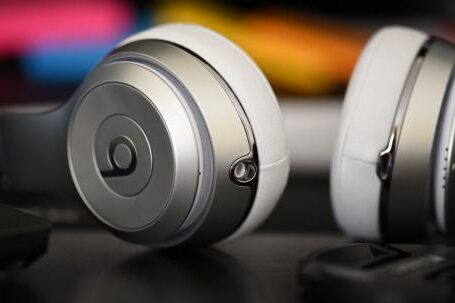In today’s fast-paced digital world, computer processors play a crucial role in determining the performance and efficiency of our devices. From smartphones to laptops and desktop computers, these tiny chips are responsible for executing instructions and performing calculations that allow us to carry out a wide range of tasks. In this article, we will explore the different types of computer processors, their features, and their uses.
1. Central Processing Unit (CPU)
The Central Processing Unit, commonly known as the CPU, is the brain of the computer. It is responsible for executing instructions and performing calculations. CPUs come in various forms, including single-core, dual-core, quad-core, and even octa-core processors. These cores allow the CPU to handle multiple tasks simultaneously, improving overall performance and multitasking capabilities.
2. Graphics Processing Unit (GPU)
While CPUs handle general-purpose tasks, Graphics Processing Units, or GPUs, specialize in rendering and processing graphics. They are commonly found in gaming consoles, high-end laptops, and desktop computers used for graphics-intensive applications such as video editing and computer-aided design (CAD). GPUs are highly parallel processors, capable of performing multiple calculations simultaneously, making them ideal for tasks that require heavy graphical processing.
3. Accelerated Processing Unit (APU)
An Accelerated Processing Unit, or APU, combines the functions of a CPU and a GPU into a single chip. APUs are commonly found in budget-friendly laptops and entry-level desktop computers. By integrating both the CPU and GPU on a single chip, APUs offer cost-effective solutions that provide decent performance for everyday tasks such as web browsing, document editing, and multimedia playback.
4. System on a Chip (SoC)
System on a Chip, or SoC, is a complete computer system integrated onto a single chip. It typically includes a CPU, GPU, memory, and other necessary components. SoCs are commonly found in smartphones, tablets, and other portable devices. Due to their compact size and power efficiency, SoCs are ideal for devices that require a balance between performance and battery life.
5. Quantum Processors
Quantum processors represent a revolutionary advancement in computing technology. Unlike traditional processors that use binary code (0s and 1s) to represent information, quantum processors use quantum bits, or qubits, which can exist in multiple states simultaneously. This allows quantum processors to perform complex calculations at an exponentially faster rate than classical processors. While still in the early stages of development, quantum processors hold the promise of solving problems that are currently beyond the capabilities of classical computers.
In conclusion, understanding the different types of computer processors is essential for selecting the right device that meets your specific needs. Whether you require high-performance gaming capabilities, efficient multitasking, or power-saving features, there is a processor available to suit your requirements. From the versatile CPUs and specialized GPUs to the cost-effective APUs and compact SoCs, each type of processor offers unique benefits and applications. As technology continues to evolve, we can expect even more exciting advancements in the world of computer processors, further enhancing the capabilities of our digital devices.




